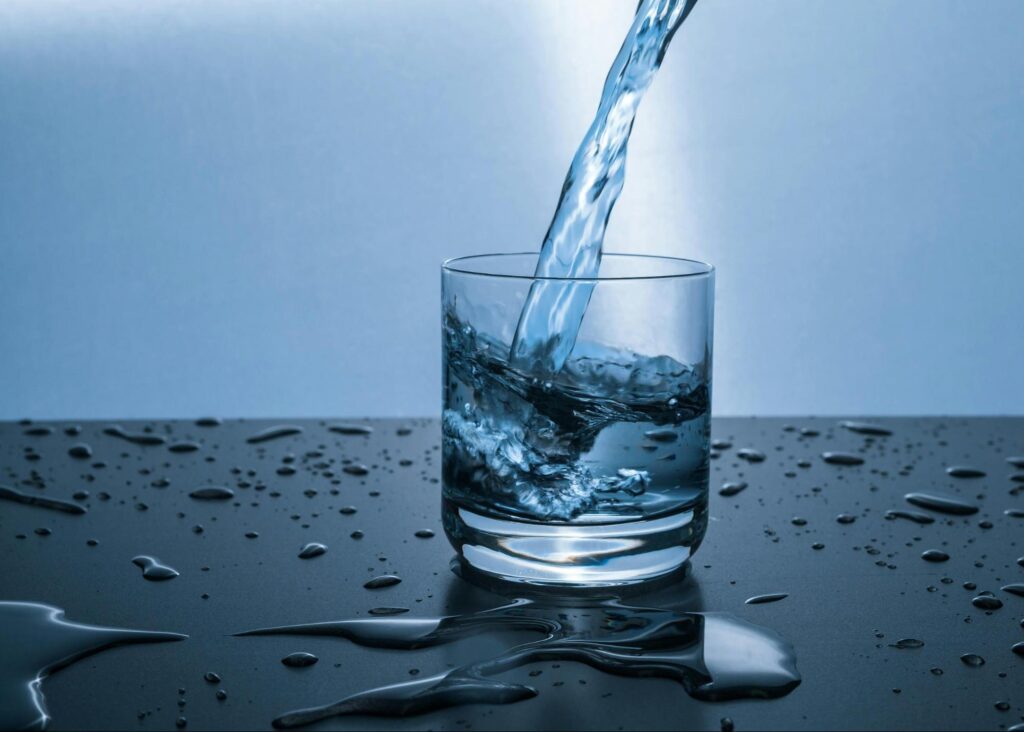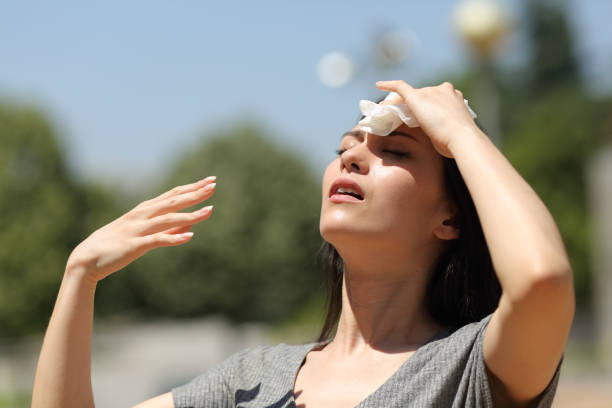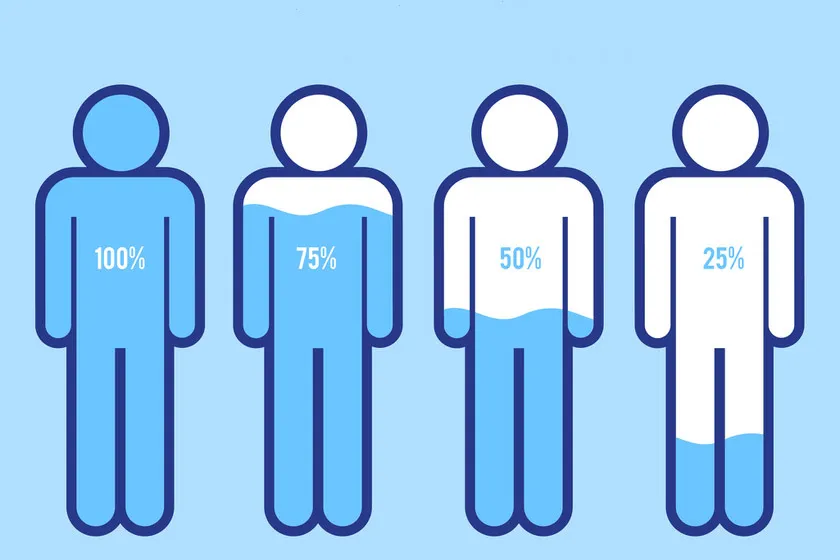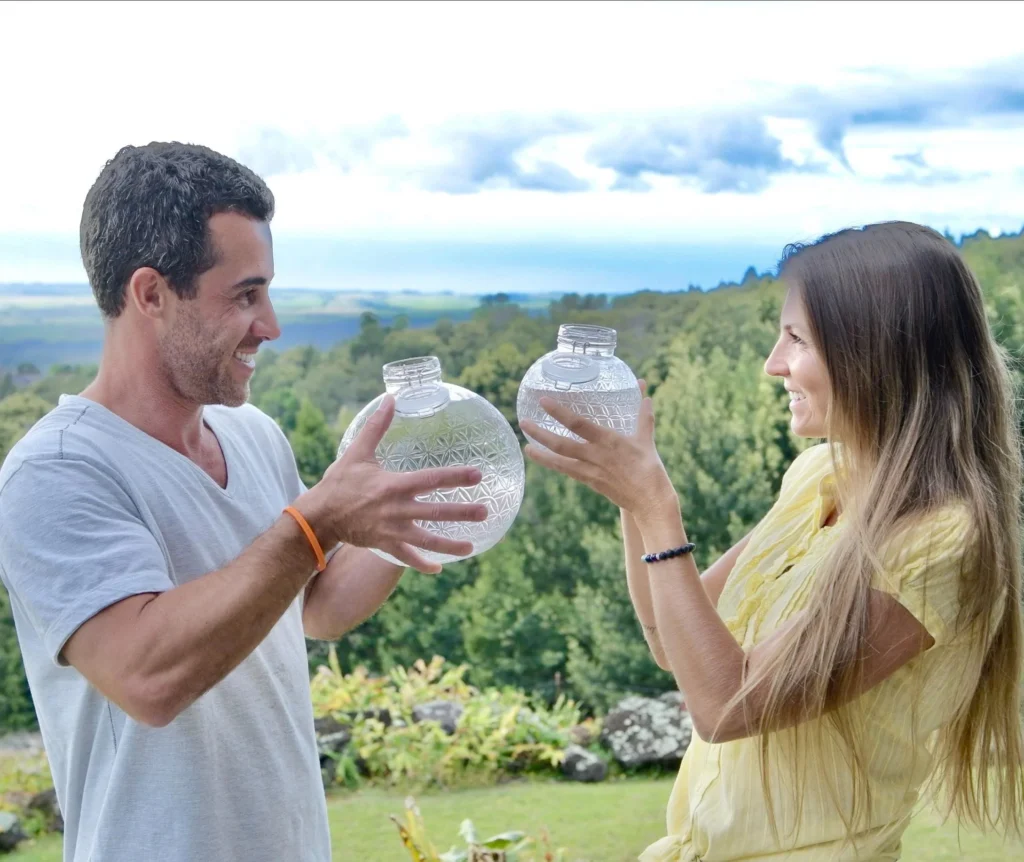Water is a basic need for life and makes up about 60% of the human body. It supports almost every function in our system, such as controlling body temperature, helping with digestion, protecting joints, and removing waste and toxins. Without enough water, the body can’t work as well, leading to fatigue, headaches, or other health issues.
Even though water is so important, many people don’t drink enough of it each day. Busy lifestyles, lack of thirst, or simply forgetting can lead to dehydration. Staying hydrated is especially important in hot weather, during exercise, or when feeling unwell. Drinking water regularly can improve energy, focus, and overall well-being.
But how much water is enough? The common advice is to drink 8 glasses a day, but that may not suit everyone. Hydration needs can change based on age, activity level, health, and climate. So, it’s helpful to understand the science, benefits, and personal needs when it comes to drinking enough water.
Why Hydration Matters ?

Hydration is not just about quenching thirst—it’s essential for your body to work properly. Every organ, cell, and system depends on water to stay healthy and function efficiently. When you stay hydrated, your body can perform daily tasks more smoothly, from thinking clearly to moving easily.
Here are some important reasons why staying hydrated matters:
- Maintains Cellular Health: Water keeps your cells nourished and functioning properly.
- Supports Metabolism: It helps break down food and convert it into energy.
- Aids Nutrient Transportation: Water carries nutrients and oxygen through your bloodstream to different parts of the body.
- Regulates Body Temperature: It helps your body stay cool through sweating and breathing.
- Enhances Brain Function: Proper hydration improves focus, memory, and mental clarity.
- Promotes Healthy Skin: Water keeps your skin hydrated, reducing dryness and improving appearance.
- Improves Physical Performance: Staying hydrated keeps muscles and joints working well, especially during exercise.
Even mild dehydration can affect your mood, reduce your energy, and make it harder to concentrate.
How Water Supports Body Functions
Let’s break down how water is involved in vital processes:
a. Temperature Regulation
When you’re active or in a hot environment, your body produces sweat to help cool you down. This natural cooling system depends on having enough water in your body. Without proper hydration, your body can struggle to control its temperature, which can lead to overheating or heat-related illnesses.
b. Digestion and Absorption
Water plays an important role in the digestive process. It helps create saliva, which starts breaking down food in your mouth. Water also helps move food smoothly through your digestive system and supports the absorption of nutrients in the intestines, making digestion more efficient.
c. Detoxification
Your kidneys use water to remove toxins and waste from your bloodstream through urine. If you don’t drink enough water regularly, waste can build up in your body. Over time, chronic dehydration may lead to problems like kidney stones or reduced kidney function.
d. Circulation and Oxygen Delivery
Since blood is made up of about 90% water, staying hydrated helps maintain a healthy blood volume. This allows your heart to pump blood more easily, delivering oxygen and nutrients to your organs and tissues efficiently.
Signs of Dehydration

Dehydration can be acute or chronic, and its signs can be subtle or severe.
Mild to Moderate Dehydration
When your body starts losing more water than it takes in, you may notice early signs of dehydration. Common symptoms include feeling thirsty and having a dry or sticky mouth. You might also get a headache, feel unusually tired, or experience dizziness. Another sign is dark yellow urine, which shows your body is trying to conserve water.
Severe Dehydration
If dehydration worsens, the symptoms become more serious. A rapid heartbeat can occur as your heart tries harder to pump blood. Your eyes may appear sunken, and you might feel confused or disoriented. Severe dehydration can also cause a lack of sweating, very little or no urination, and low blood pressure, all of which are signs that your body is in distress.
Early Recognition Matters
Catching dehydration early is very important, especially for infants, young children, and the elderly. These groups may not always show obvious signs, so monitoring their hydration closely can help prevent serious complications.
How Much Water Do You Really Need ?
a. General Recommendations
The popular “8×8 rule,” which suggests drinking eight 8-ounce glasses of water per day, is a simple guideline, but it may not suit everyone. Hydration needs can vary depending on age, activity level, climate, and overall health.
According to the U.S. National Academies of Sciences, Engineering, and Medicine, the recommended daily water intake is more specific:
- Men should aim for about 3.7 liters (125 ounces) of total fluids per day.
- Women should aim for around 2.7 liters (91 ounces) of total fluids per day.
These amounts include not only plain water but also other drinks like tea, juice, and even moisture found in foods such as fruits, vegetables, and soups. It’s important to remember that hydration comes from more than just what you drink.
b. Listen to Your Body
Thirst is your body’s way of signaling that it needs more fluids, but relying on thirst alone may not always be enough. In many cases, by the time you actually feel thirsty, your body may already be slightly dehydrated.
A more reliable way to monitor your hydration is by checking the colour of your urine. If it’s a pale yellow, that usually means you’re well-hydrated. Dark yellow or amber-coloured urine can be a sign that you need to drink more water. Paying attention to these small signs can help you stay ahead of dehydration and keep your body functioning properly.
Factors That Affect Water Requirements
Hydration needs vary based on individual factors:
a. Physical Activity
When you exercise or engage in physical work, your body loses fluids through sweat. The more intense the activity, the more water you lose. To stay hydrated, it’s important to drink extra water before, during, and after being active.
b. Climate
Living in hot or humid weather makes you sweat more, which leads to faster fluid loss. Even in cooler temperatures, high altitudes can cause increased breathing and urination, both of which can also lead to dehydration if not balanced with proper fluid intake.
c. Age
As people get older, their sense of thirst may weaken, making it harder to know when to drink. Children, on the other hand, have a higher water turnover and can become dehydrated more quickly, especially during play or illness.
d. Diet
Eating foods that are high in protein, fiber, or salt increases your body’s need for water. Drinks with caffeine or alcohol can also cause your body to lose fluids more quickly, so extra hydration is often needed.
e. Health Conditions
When you’re sick, especially with fever, vomiting, or Diarrhea, your body loses water rapidly. Certain medical conditions and medications may also raise your need for fluids to avoid dehydration.
f. Pregnancy & Breastfeeding
During pregnancy and breastfeeding, a woman’s body requires more water to support the growing baby and to produce breast milk. Meeting these needs is important for both mother and child’s health.
Hydration Myths Debunked

❌ Myth 1: You must drink 8 glasses of water daily
✅ Truth: The “8 glasses a day” rule is a general guideline, but hydration needs differ for each person. Factors like physical activity, diet, age, and climate all affect how much water your body actually needs. Some people may require more, while others may need less.
❌ Myth 2: Coffee and tea dehydrate you
✅ Truth: Although coffee and tea are mild diuretics, they still contribute to your total daily fluid intake. In moderate amounts, these beverages can hydrate you just like water, especially if you’re already used to drinking them regularly.
❌ Myth 3: Clear urine means you’re perfectly hydrated
✅ Truth: Completely clear urine might mean you’re drinking more water than your body needs. The ideal urine color for proper hydration is a pale straw-yellow, which shows your body has enough fluids without being overhydrated.
❌ Myth 4: You can’t drink too much water
✅ Truth: Drinking too much water in a short time can lead to a condition called hyponatremia, where sodium levels in your blood drop too low. This can be dangerous and even life-threatening, so it’s important to find a healthy balance.
Best Sources of Hydration
✅ Water
Plain water is the best and most natural way to stay hydrated. It contains zero calories, no sugars or additives, and is easily available. Drinking water throughout the day helps your body function well and keeps you feeling refreshed.
✅ Fruits & Vegetables
Many fruits and vegetables are packed with water and can help meet your hydration needs. Options like watermelon, cucumber, strawberries, and celery are over 90% water, making them excellent snacks for boosting hydration naturally.
✅ Herbal Teas
Herbal teas, such as chamomile or peppermint, are naturally caffeine-free and gentle on the body. They not only help with hydration but can also be soothing and relaxing, especially in the evening or after meals.
✅ Milk and Broths
Both milk and clear broths provide fluids along with important nutrients. They are particularly helpful after exercise or illness, as they contain electrolytes like sodium and potassium, which help the body recover and maintain fluid balance.
✅ Electrolyte Drinks
These drinks are useful for rehydration after intense exercise, sweating, or heat exposure. They replace lost minerals, but it’s important to choose options with low sugar content and use them when needed—not as an everyday drink.
Tips to Stay Hydrated Daily
- Begin your morning with a glass of water to kickstart hydration after hours of sleep.
- Keep a refillable water bottle with you to make sipping water easy and consistent all day.
- Add fruits or herbs like lemon, cucumber, or mint to your water for a refreshing taste.
- Set daily reminders or hydration goals to help stay on track and avoid forgetting to drink.
- Hydrate before, during, and after physical activity to replace fluids lost through sweat.
- Include water-rich foods in your meals, such as watermelon, oranges, and leafy greens.
- Cut down on alcohol and sugary drinks, as they can lead to dehydration over time.
Special Considerations
a. Elderly
Older adults often have a reduced sense of thirst, which means they might not feel thirsty even when their body needs water. Medications, certain health conditions, and limited mobility can also affect how much they drink. To prevent dehydration, it’s helpful to encourage them to take small, regular sips of water throughout the day—even if they don’t feel thirsty.
b. Children
Children tend to be very active and have smaller bodies with less fluid reserve, making them more vulnerable to dehydration, especially during play or in hot weather. They may not always ask for water, so it’s important to offer fluids regularly and remind them to drink even when they’re not complaining of thirst.
c. Athletes
During intense workouts or sports, athletes can lose large amounts of fluids—sometimes up to 1.5 liters per hour—through sweating. This can quickly lead to dehydration. Drinking water is essential, but after long or heavy sessions, fluids with added electrolytes help replace lost minerals and support recovery.
d. Pregnant & Breastfeeding Women
During pregnancy and breastfeeding, a woman’s body needs more fluids to support the growing baby and produce enough milk. Depending on the stage of pregnancy or if nursing, water needs may increase by about 300 to 700 milli liters per day. Staying hydrated is important for both the mother’s comfort and the baby’s health.
Risks of Overhydration
Yes, while staying hydrated is important, drinking too much water in a short period can actually be harmful. This condition is known as hyponatremia, and it happens when the level of sodium in your blood becomes too low due to excessive water intake. Sodium is a vital mineral that helps regulate fluid balance in and around your cells. When it’s diluted too much, your body’s cells begin to swell, which can lead to serious health problems.
What is Hyponatremia ?
Hyponatremia happens when the level of sodium in the blood becomes dangerously low due to drinking too much water. This causes an imbalance in the body’s fluid levels and can lead to serious health problems if not addressed quickly.
Common symptoms of hyponatremia include:
- Nausea and vomiting
- Headache
- Confusion or trouble thinking clearly
- Fatigue or weakness
- In severe cases: seizures, unconsciousness, or coma
This condition is particularly common in endurance athletes, such as marathon runners, who may consume large quantities of water over a short time without replacing lost salts and minerals. When too much water dilutes the sodium in their blood, it disrupts normal cell function.
To avoid hyponatremia, it’s important to stay hydrated without overdoing it. Drinking water gradually, listening to your body’s thirst signals, and using electrolyte drinks during intense or prolonged physical activity can help maintain the right balance.

Conclusion
Hydration isn’t about following a single number—it’s about finding a balance that fits your body and your daily life. Everyone’s water needs are different and can be affected by things like how active you are, the weather, your age, your diet, and your overall health. Water supports almost every function in your body. Staying well-hydrated helps keep your energy steady, improves focus and brain function, supports smooth digestion, keeps your skin looking fresh, and boosts your overall health.
The smartest approach is to listen to your body’s natural signals. Thirst is one clue, but you can also check the color of your urine—pale yellow usually means you’re well-hydrated. Try to build a daily habit of drinking water without forcing it. Carry a water bottle, sip regularly, and don’t wait until you feel parched. When you make hydration part of your everyday routine, you support your body from the inside out—one simple sip at a time.
FAQs
- How much water should I drink each day ?
The general recommendation is about 3.7 liters (125 oz) for men and 2.7 liters (91 oz) for women, including fluids from food and beverages. However, individual needs may vary based on activity level, climate, and health. - Can I rely on thirst to tell me when to drink water ?
Thirst is a useful signal, but it often appears after you’re already mildly dehydrated. It’s better to sip water consistently throughout the day and monitor your urine color for hydration levels.
- Do drinks like juice, tea, or coffee count toward hydration ?
Yes! Most fluids contribute to your daily hydration needs, including coffee, tea, milk, and juice. Just be mindful of sugar or caffeine content. - Can I get water from food ?
Absolutely. Many fruits and vegetables are water-rich. Cucumber, watermelon, oranges, lettuce, and strawberries are excellent hydrating foods. - Is it possible to drink too much water ?
Yes. Drinking excessive water in a short period can cause hyponatremia, a dangerous drop in sodium levels. Balance is key—don’t overdo it. - How can I stay hydrated if I don’t like plain water ?
Try infused water with fruits or herbs, herbal teas, flavoured water (low-sugar), or eat more water-rich foods. Reusable bottles with markers can also help track your intake.


